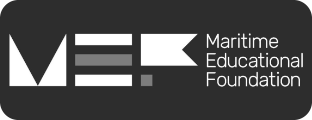Coming Ashore podcast Episode 5 meet the mentor Steven Jones
Posted on 8 April 2020 by Andrew Cowderoy
On Episode 5 of the Coming Ashore podcast, Andrew Cowderoy sits down with Coming Ashore mentor Steven Jones. The founder of the Seafarers happiness index. Steven started his maritime career at the age of 17, and has had a vast career since, both offshore and on land.
Would you rather listen? Listen on Spotify and ITunes or watch now on YouTube.
Click here to find out more about the Coming Ashore programme. Where you'll find professional guidance, mentorship and work experience opportunities for transitioning to a career on land.
Andrew Cowderoy:
Hello ladies and gentlemen, and welcome to the Coming Ashore podcast. My name is Andrew Cowderoy. With us today we have Steven Jones, a former Seafarer who has come to shore and is a mentor on the program. I'd like to that Steven introduce himself who's based up in Liverpool. Thank you for joining us, Steve.
Steven Jones:
Hi, Andrew. Thank you. Yes. Hi everyone. Yes. A former Seafarer, eight generations in my family went away to sea, and I guess it was inevitable that I will be drawn into it as well, as I was. I spent most of my time on cable ships laying and repairing submarine cable all over the world.
I had a great time at sea. Enjoyed it, but not enjoyed everything. There were massive challenges, and we'll possibly return to that later on in the podcast. The move ashore, for me, it was one that kind of felt inevitable as I wanted to explore some of the things that surrounded shipping, not just working on the ships themselves.
I came ashore to Liverpool, John Moore's University initially, did a BSC in maritime studies. As part of that as I'm focused on piracy and security issues. And after University, had a very brief spell working in BTS, which was a great opportunity to see ships from the shore, and what they do, kind of literally and metaphorically from a different perspective. And then fell into a role with Lloyd's Marine intelligence Unit as well. It's now Lloyd's List Intelligence, as a marine fraud investigator and a lot of other stuff that I'd learned at sea, but also combined with the kind of, the more commercial side that my degree gave me.
There's a great opportunity to kind of see how shipping works, both the good and the bad. Unfortunately, in fraud investigations you're a little bit like an AA man must feel about cars. You often only turn up when things go wrong, so it gives you a kind of quite a jaundiced view of the industry at times. But that was a great opportunity for me to kind of understand how the commercial world bucks against shipping. Kind of the disputes from an insurance perspective, from a legal perspective, and where they all kind of fit together.
I then went to work for North of England PNI club. This was around the time where the ISPS, the International Port Security Code, and Shipping Port Facility Security Code was kind of coming to fruition. So working on the loss prevention side, risk management as they called it, working with their owners globally, to advise them not just on security but also on various loss prevention matters.
From then, I've kind of had a very mixed career, really. Dipping in and out of many different sides but always very focused on the maritime industry. I worked in the Nautical Institute, I was professional development manager there. And this was really my first exposure to how other people can perhaps move ashore and how their careers can develop, if they don't want to stay at sea all the time. So very much kind of a proponent of making sure we have the career ladders sorted and the various stepping off points. So you know, whether people did want to stay on after their ticket. If they only wanted to do one ticket, maybe sell the second mate and then step ashore. Chief Mate Masters and obviously conversely, on the engineering side. So really making sure that we recognized them, understood the drivers for people moving to shore.
I've been involved in setting up trade associations, professional bodies. Parallel to that I've also done some additional study, not on maritime per se. I did an MSC in marketing communications and PR and also an MA in international relations. But what I did, I took those kind of non-maritime subjects, but provided a maritime focus. So, in the communications masters, I focused on hostage and ransom negotiations within shipping companies. And then from the international relations perspective, I was looking at the effect of the United Nations Convention of the Law of the Sea on security, and how the control of ships in international waters was being managed. So, very much tried to maintain a constant thread of maritime in everything that I've done, because that has been the thing that's allowed me to have a career.
I'm currently working with the Department for International Trade, working with maritime services companies globally, to make sure that the UK opportunities are kind of magnified, and we're engaged with embassies and diplomatic services overseas. And hopefully being able to drive both foreign direct investment back into the UK, but also to ensure that any demand for maritime services work, is serviced by UK companies. So that kind of brings you very much back to today, to where I'm at, my movements from sea to shore and some of the things that have flavoured my view of a career in the maritime industry.
Andrew Cowderoy:
Okay. It's a hugely diverse career within the industry, and taking slight tangents away from perhaps the more traditional. As in, many who are coming ashore may only consider a role within a management company. But just there alone, you've explained extremely clearly how there are a whole plethora of opportunities, away from perhaps what one may consider a more traditional coming ashore process.
Let's go back to when you did sort of decide to come ashore, what was it that sort of really kicked you off into the decision making process?
Steven Jones:
I think I'd never really kind of anticipated growing up, I guess. I'd never really known what I wanted to do, and I fell in to going to sea a little bit. I didn't do terribly well at school, in fact pretty awfully. And it was a bit of a kind of struggle of whether I was going to be able to do anything.
Thankfully I kind of persevered, and I had a couple of boots up my backside to help me persevere. So when I actually started to progress, and got more into the actual seagoing career, and was qualifying and getting through the tickets and, and starting to kind of look at what an actual career would start to look like ... That kind of coincided with, as most fleets do at various points, whether there was rumors of certain nationality of officers going to be replaced, or when I worked with Cayman Wireless, which became Global Marine and that, there wasn't ever going to be a prospect for rapid promotion.
So at that point you kind of have to take an honest look in the mirror and what do you do? You know, everyone used this stand, whether it was in a bar or a smoker or wherever, and be talking about the fact that they didn't want to be stood there in five years. And I really didn't want to be one of those ones saying that and then still being stood there in five years. So I made the decision, thankfully kind of supported by some tax returns that obviously always do have to get factored into a career at sea, and making that move ashore, the financial impact of taking that risk, that hit.
So you know with a tax return of my pocket, with some dreams and hopes ahead of me, the idea of coming back to the UK, back to home. Which for me has always been, the kind of Northwest Liverpool area and going to University to try and kind of cement the things I'd learned at sea, but against the kind of wider backdrop of what the maritime is. Because of course, yes, the front end is all about the ships, but there's obviously so much more surrounding it. So that was really, the move was in part forced slightly upon me by the fear of maybe we were all going to get laid off. But also with the hope of maybe getting involved in a wider perspective. So, that was really the kind of drivers behind it.
Andrew Cowderoy:
And when you, so going through that decision making process, it sounds like you had a fairly clear place you wanted to be, coming ashore. Go to University. Did anybody aid in that decision making process? Was it anybody, any charity? Did you have a network when you sort of started to make that decision?
Steven Jones:
Yeah, no, I was very much alone in the decision making process. I think my family, my father, grandfather, I think were actually a little bit disappointed if I'm honest. My grandfather was the chief engineer on my father was electric tech officer. Well my grandfather moved ashore after probably, I think he did about 15 years at sea. Whereas my father's entire career was at sea. I think something like 35 years working actually on the ships themselves.
So I think they were a bit disappointed, because I think they'd always had the vision of me qualifying and sailing as a master. Which for me was, was actually never a consideration. I never actually wanted that. I kind of, could see a good career on ships, but I could see an even better career in the wider maritime industry. So although it sounds like I did have a plan, I didn't. I just kind of went with a little bit of a gut kind of reaction to things.
I think, I didn't get any advice. And it would have been great to have had some. But I didn't really know where to turn. But equally I think in the back of my mind there was always that consideration, that I could go back to sea, if things didn't work out the way that I wanted them to do. So there was always that kind of a safety net in my head and heart that if it didn't work out, I could go back.
Andrew Cowderoy:
I think that's actually quite worth remembering, for the men and women at sea that, if in fact you choose to make the process to come ashore, the decision to come ashore, to go down the route of the Coming Ashore program and actually find out a year down the line that actually working the shore isn't for you, the sea is not going anywhere. The maritime careers at sea is not going anywhere so that you have a fantastic safety net to fall back on.
You said your time at sea wasn't particularly happy. Would you be able to sort of share on that, and sort of perhaps touch on some of the work that I know you've done? Just on the happiness index, just as sort of a side discussion.
Steven Jones:
Yeah. When I, interestingly would get into the 30th anniversary of me joining my first ship, October the 13th, 1990, down in Graves and I joined the vessel called The Grind Word, which was a kind of 1982 built, a bulk carrier. I got dropped off by the taxi driver and he saw the ship slightly before I did as we turned the corner, and he actually apologized to me. So, I thought, oh great. This is going to be good.
I was the youngest onboard. Even including the crew, I was the youngest by about 10 years and I'm probably the youngest by about 20 years from the officers. It was such an incredibly difficult change. I don't think I'd been terribly well prepared or geared up for it. I think I did my kind of induction at Warsash and although a lot of the lecturers there were great, they were preparing me for a seagoing career in a different age, you know? It just didn't resonate with any of the things that they'd kind of really taught me about.
And it didn't really reflect the life that I'd seen. I'd actually been on some of my father's ships, and sailed. And I was the first child to sail on a Harrison's vessel, went around the Caribbean when I was about nine years old. And so I'd seen shipping, but actually in a very different type of shipping. So yeah, the kind of the social life, the isolation, the feelings of kind of just, "Wow, is this it? This is me for four months, five months?", was really hard to bear. And certainly at that age, you know? At 17, 18, feeling that maybe the things that other people were going off to do, whether it was University, whether it was apprenticeships at home, I wasn't sure I'd made the right decision. And it took a long time actually, before I ever really felt that I had.
So it was always that backdrop of a kind of slightly negative style. I was very fortunate that some of the officers on board really did look after me. They took me under their wing, and I'm still in touch with some of them, and they've been a kind of mainstay throughout my career. Both as friends, mentors to a kind of informal extent. But it's been really important.
Tying back into what you were mentioning, the seafarers happiness index. I was founder of this initiative, which is now working with the mission to seafarers, to actually ask seafarers how they feel about their happiness. Happiness being such a fundamental issue, in every relationship. And the relationship between the Seafarer on that ship, and their colleagues and the rest of crew, with their company, with their family, with the rest of society, is a really important set of relationships.
So trying to understand how they feel. So this is, I guess, in part we're all coloured by the things that have gone on in our past. So recognize the importance of happiness in how people progress in their career, has been a really important kind of mainstay of everything that I've learned to look at through seafaring gone through the shipping industry. So I'm proud to be involved in that. And equally, never forget the bad times, always remember the good times, but always have a realistic approach to what it is to work at sea. And that's not to say that it's all, rainbows, unicorns and lollipops, when you move ashore. But, we do what we do to have the careers that we've tried to forge and to be as successful as we can.
Andrew Cowderoy:
Absolutely. And just again, on the happiness, on the isolation, given the current situation, for those who are perhaps listening to this, in a few months’ time, or years down the line. At present, we're dealing with almost a global lockdown where, everybody's working from home, working to a degree of isolation. And because of this it scenario is that we live in today, isolation is becoming far more prominent, both at sea and on land. Seafarers not being able to make their way home. To see the family, their friends and counterparts, colleagues onshore self-isolating, keeping away from the disease that's going around the world.
Would you, Steven, be able to give any advice as to how either a seafarer, who's at sea, can't get home, or indeed, one of our colleagues around in the maritime industry or the wider public can perhaps support, or make sure they maintain a degree of happiness in what is becoming an even more isolated world?
Steven Jones:
Yeah, sure. I mean, well, if you're listening to this in the future, yay, we made it. It's ... yeah, there's difficult times at the moment. Certainly from the initial responses, within the seafarer's happiness index, because we basically, look back over a quarter of the year. So we're now looking back into the kind of the start of the year, January, into these past couple of months and weeks. And it's interesting to kind of see that slow dawning realization of the severity of the problem, and also the implications too. With crew changes being postponed indefinitely with people's contracts being renewed, even if they don't particularly want to stay on the ship. There's terrible circumstances going on that people are scared about what's going on, not just for themselves, but for their families and communities back at home. There's fear of the implications. There's the stress and worry about wanting to go home, to have time with their families.
So, at the moment it's quite a bleak negative picture. You know, we're hoping that these things can be turned around. I don't necessarily think I'm able to give any quick fixes, for how people can stay happy, or even what they need to do, to kind of get through their time. But just, the hope is that things can turn out better, and the solutions will be found. I know the various Seafarer welfare organizations, the unions, are trying to look at this issue, trying to work with flag and port states to make sure that crew reliefs can be dealt with or managed. And that people can be in the places that they want to be. So yeah, it's a terrible, terrible time at the moment. And hopefully the answers can be found.
Andrew Cowderoy:
Hopefully they can. And I thank you for that insight. And jumping back into the Coming Ashore program and the mentorship, you said throughout your entire career from being at sea, you stayed in contact with many of your colleagues, who had been informal mentors to a degree. And I thank you for your commitment to support the seafarers today, and in the future who are deciding that a career change is right. Can you sort of start to perhaps give some advice, what's a seafarer today, despite this current situation could do to perhaps look towards preparing for that career change and coming ashore? Perhaps look at your own experiences, and is there something you would've done differently with all the experience that you know now? Today?
Steven Jones:
I mean, we often think about, in shipping, and as deck officers, as we were, about the kind of, passage plan and where you're going, and how are you going to get there, and the hazards along the way and all that stuff. And it would be great if a career could be laid out on a chart in those ways, and we could anticipate that the currents ahead, and the weather, and the traffic and all the rest of it.
But the truth is, it's very hard to do that. A lot of the things that we planned for may never happen. A lot of the things that we don't anticipate, well, it's a funny journey, your life and your career. And I think if we, sometimes that can be a danger, in trying to anticipate too much. I guess it's the difference between having a strategy and the tactics. You know, I think inherently, I had a strategy. And the strategy was try to stay in the shipping industry, to develop and to grow and to ultimately be successful, in whatever terms I decided were the appropriate terms.
I've never shied away from taking the kind of various decisions within that. Some of them have been great decisions, and some of them maybe not so great. Ultimately with the kind of strategic vision at heart, of wanting to stay in the maritime industry, and wanting to succeed, to be involved in things. To kind of grow and work with people I respect and enjoy. And that has been the focus. And I would really warn against having too prescriptive of you, of what you want to do. Because there can be many twists and turns in that. And it's just served me well to just have a little bit of a kind of wider view.
And that has been, I think why I've been able to do some of the interesting things and be involved in the things I have. Because it's allowed me a little bit more kind of latitude and leeway in moving forward. So it's great to have a vision of what you want to do. You know, I want to be a maritime lawyer or something. That's great. But there's lots of other things surrounding and all the rest of it. So I think having a wider view is sometimes better.
Andrew Cowderoy:
Some great advice, rather to keep that broad view rather than try, try and fit a square into a hole perhaps. And keeping your options open. And if you are at sea today, again, sort of knowing what you wanted to do, is there anything that you would look, anywhere you'd look at, to aid in that trip, that career change? Apart from the Coming Ashore program, what sort of steps would you perhaps take?
Steven Jones:
I think, we live in a fortunate age now where I think education has never been more accessible. I think looking back, I would have benefited from, looking to the likes of the Institute Shore to Ship brokers exams. I subsequently did them when I came to university. But I think something like that would have maybe, prepared me better for the commercial view. You know, there are so many courses, there's so many options. There's so many ways of dipping your toe into understanding what the maritime industry is, has been, and what it will be in the future. And I think harnessing the intelligence, the vision, the drive, and the passion that seafarers have and as we've all had various points is really gives you a really good starting point on having that career. You know, moving ashore with a really confident view of the industry that you're passionate about and you care about, or want to be involved in, and engaging with people who do that.
I'm also involved in an organization called the Propeller Club in Liverpool, which is a maritime networking organization. And we do very many events. We bring people together. But what is, always brings me the greatest satisfaction is, when you look around the room and you see someone who's maybe 80 years of age, was at sea for years, and has had a wonderful career, talking to one of the students from ... often we get them from Liverpool, John Moore's, coming along and they're laughing and exchanging stories. And the young person giving their view, and also the view from those who have been, and experienced so many things.
And that's the answer. We're so fortunate in shipping that we have amazing characters, who want to give, who want to share, and who want to be part of the journey for the generations that come behind them. And I think harness that, do some studying, do some reading, understand the history, understand the way the commercial jigsaw kind of sits together. But also, make the most of the people who've been there before you. I think that is kind of a primary importance in doing anything. You can't do anything in a vacuum. You will not succeed in a vacuum. So engage with people. And this is why I'm so pleased to be involved in this project because, I think it is so important.
Andrew Cowderoy:
Oh, it's some great advice and, just a couple of pin points that sort of seem to be continuing throughout, is we are in an extremely fortunate situation where the industry of shipping and the wider maritime sector is an extremely friendly place to work in. Whether you're at the Propeller Club, the Honourable Company Nautical Institute, or coming ashore and visiting the chaplains, everybody's there for a conversation and it's a point to remember that. Never be afraid to reach out and ask for virtual cup of coffee, or a chat or perhaps even just a bit of advice. We are here, we're not going anywhere and have a chat. Would I be right in saying?
Steven Jones:
Yes, definitely. You know, again, in the same way that education has never been more accessible, the people who've never been more accessible too. With the likes of social media and campaigns such as this, the people, the experience, the help that you need to move ashore, is there. It's only a click or a call, or whatever you want to do away. And people will answer any questions that you have.
I didn't access that. I didn't know what was there and maybe naively kind of ploughed on. I wish I had probably had some more insights, but I didn't feel it was available when I made the move ashore. But for those making it now, it is. So use it, you've got every tool that you need, at your disposal to really make the decisions, but at the end of the day they are your decisions. It's your life, it's your career, it's your passion that has to be fired, and your journey to where you want to get. We can only help you along the various staging points.
But so, having that kind of really strategic view of what you want life to look like in 10, 20, 30 years hence, I think that's the secret. And know that we are there to help, support, to guide, to be a voice of reason when you need it or equally to hear out another perspective. I think that's so important in what we're doing.
Andrew Cowderoy:
Thank you so much for that, Steven. And if somebody wants to find you and they're at sea, or sitting somewhere ashore around the world, how can they find you? Social media, LinkedIn, et cetera, and, or even interested in perhaps the work that you're doing today. What's the best?
Steven Jones:
The joys of having quite a generic name is if you put Steven Jones into LinkedIn or Facebook, you'll probably be scrolling through it for about two years, to actually find me. So come through the Marine Society scheme through Andrew. I'm sure he can direct anyone who's interested in hearing more or hooking up or being part of this. But yeah, LinkedIn is probably as good a place as any, or equally Twitter if you search for @propellerists. Drop me a line on there and I'm sure we can have some light-hearted exchanges, before we direct you to the actual nuts and bolts of how to make a great career ashore.
Andrew Cowderoy:
Well, thank you very much, Steven, for your time today. I hope those who are listening have found this useful. I've certainly found it fascinating to catch up and hear more about your career in the industry and your change to come ashore.
This podcast was presented by the Marine Society. If you want to find out more about the coming ashore project, be sure to subscribe to the channels podcast on YouTube, Spotify, iTunes. Visit us on Instagram, Twitter, Facebook, LinkedIn, or visit the Marine Society website.
For more information on the Marine Society's Coming Ashore program, including information on mentorship, please visit our Coming Ashore page.





